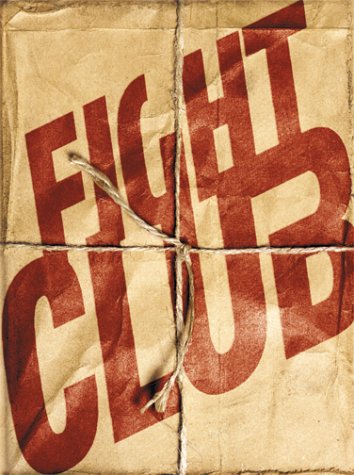
The Hop is getting better and better every week. For those who don't know what the Literary Blog Hop is, visit this link and join the madness. The question this week is: "What makes a contemporary novel a classic? Discuss a book which you think fits the category of ‘modern classics’ and explain why."
If there's anything I would call myself an expert at, it's contemporary fiction, so here are my two cents. Whether you like it or not, people in a hundred years will still read the novel Fight Club by Chuck Palahniuk. I'm not completely convinced about Palahniuk's relevance, I'm very hit and miss about his fiction, but Fight Club is one of my top 3 favorite novels ever and it's only been written in 1996. There are many reasons for that.
I think that staying power behind a novel comes from addressing a problem of its time. I might piss off many female readers here, but I am convinced of my point. Society changed extremely fast since the fifties. For the better. Females emancipated and stormed the work market. The classic icon of the male purveyor who comes home at night in a suit and reads the paper is not valid anymore. Once again, I think it's a great thing, that stereotype was retarded and bound to disappear. But you can't move things that much without putting everything out of places. Males in the nineties (and still today, hence the ever-staying actuality of the novel) feel useless and vulnerable with no strong image to hold on to. Television tries to convince them they'll be rock stars of Hollywood actors, but when the television is off, there's a huge void, a gap.
Fight Club courageously addresses the issue of male existential dread. Even more so, it proposes a solution. The disciples of Tyler Durden organize into a clandestine society and try to change things, to shake the values of a society which makes them who they are and who they loathe. And it all starts at the Fight Club. There is no bigger affirmation of life than to fight. People who never did it think it's a pulsion of death, but they are wrong. By hitting another person in a consensual fight (not in an aggression, of course), by making marks on his face, it's to keep saying "I exist, I exist". You never forget those you fought with.
That's where Fight Club takes its power. It puts the finger on an unnamed problem of its time. Everybody affected by the problem can relate. Fight Club changed my life as it did for millions of other young men. In a preface, Palahniuk said that 3000 young men around the world legally changed their name to Tyler Durden. There's meaning behind that name. Power, boldness and will to change your life around. It named a disease. It's a 216 pages name that takes form of a story, but when you name a disease, you also identify its functions and its limits. During its time a novel gains power by addressing problems and keeps its place in time by chronicling an era. History is never history until it's passed. Before that, it's a social issue.
Fight Club is bold, courageous and honest. For that reason, it touched the lives of millions of people. It also made a blue print for novelist on how to write "game changers". Those novels who dare to attack reality with fiction.
